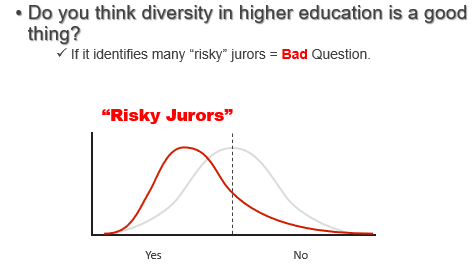Panic codes – “Buddy”
This is the 3rd and final post about panic at the mock jury research. Things happen. Bad things. Some are technical, some may involve the client, and some may involve the mock jurors. But, there are things about which some people would panic, which are better discussed outside the presence of the clients or mock jurors and only amongst members of the trial consulting team. Many years ago, we devised a protocol, called the “Buddy” procedure, to implement when something bad happens. Under this protocol, if something arises demanding my or Melissa’s attention, away from the clients, the team





